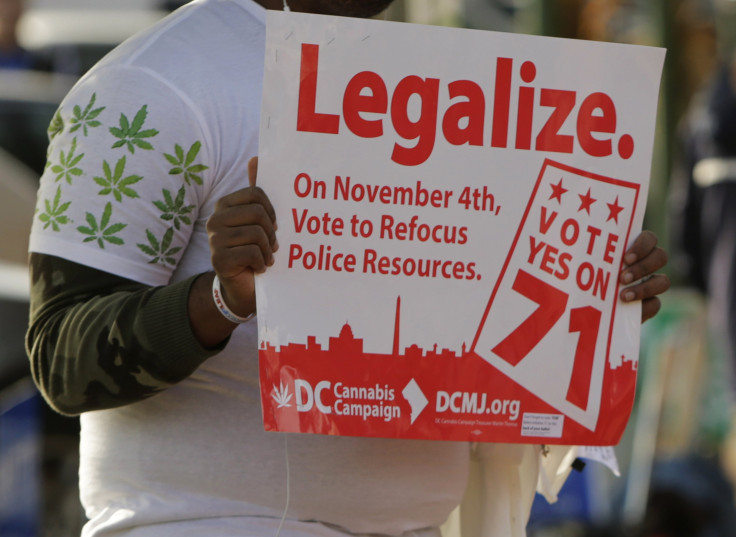Marijuana Legalization: Advocates Eye California, Arizona And Others For Big Wins In 2016

Galvanized by wins in Alaska, Oregon and the District of Columbia during Tuesday's midterm elections, advocates on the frontlines of U.S. marijuana legalization are looking ahead to 2016, a presidential election year that will bring more young people -- a group that supports legalizing weed in high numbers -- to the polls. Americans across the country have increasingly favored softening pot laws, but some places are more ready than others for the kind of pot culture that has become a fixture in cities like Denver and Seattle, activists said.
“We have to be prudent in which campaigns we pursue and in what order,” Stephen Gutwillig, deputy executive director of programs at Drug Policy Alliance, a national marijuana group that funds legalization efforts in several states, told International Business Times. There are five states with "a significant likelihood” of legalizing weed in 2016: Arizona, California, Maine, Massachusetts and Nevada, Gutwillig said. Polling in those states has shown strong support among voters for legalizing marijuana and advocacy groups already have solid ground campaigns to build on.
Over the next two years, the alliance, along with another national group, the Marijuana Policy Project, will help marijuana advocates in those states meet their deadlines for drafting initiatives for state approval, a process that will require “a good deal of legal research and drafting know-how,” Gutwillig said. And one crucial type of green: money.
Prepping California, the largest state, to vote on legalizing marijuana could cost upward of $10 million, Gutwillig said. Most of that will fund TV commercials to promote marijuana to the public. Then there are the hundreds of thousands of dollars spent in consulting with experts to make sure it aligns with existing law and has met all the components it needs to be considered for a vote.
On the other hand, “persuasion is far more expensive,” Gutwillig noted. Statewide campaigns aimed at changing public opinion can cost upwards of $40 or $50 million, he said, and “that’s not the kind of money that we have access to.”
A majority of Californians -- 52 percent -- said for the first time last year that they support legalizing marijuana in their state, and marijuana advocates there are well on their way to meeting deadlines for getting marijuana on the Nov. 2016 ballot. Fifty-six percent of Arizonans said they favored legalizing the possession of small amounts of marijuana last year. Advocates there filed paperwork with the state in September, the first step toward getting an initiative in front of voters. In Massachusetts, 58 percent of the state’s residents said they favored legalization.
Advocates consider those states likely slam dunks in 2016, however, support for marijuana legalization in the U.S. extends to other states whose prospects for legalization are a bit more hazy. In Missouri, advocates of legalizing marijuana have said public opinion continues to shift in their direction. “We think it’s a question of getting people out to vote,” John Payne, executive director of Show-Me Cannabis, told IBTimes. The advocacy group filed a petition Wednesday with the secretary of state to amend the Missouri Constitution to allow cannabis to be sold, taxed and regulated.
The next step is to get signatures. “We have to get signatures in six of Missouri’s eight congressional districts,” he said. “The focus will be on the districts that are more urban than rural.”
© Copyright IBTimes 2024. All rights reserved.





















